Postgraduate Researchers’ Day 2025 – Share, Discover, Engage!
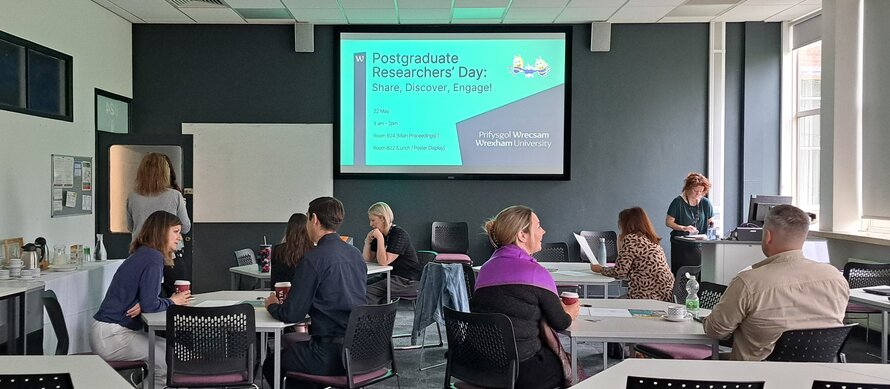
Postgraduate Researchers’ Day 2025 kicked off with a warm welcome from Hayley Dennis, setting the tone for a day packed with inspiration, shared experiences, and a good dose of fun.
Emma Harrison followed up by getting everyone involved right away with a “fun fact” quiz—a great icebreaker to help researchers get to know each other (and discover a few unexpected facts they never knew they needed to know!).
Taking home the prize—and everlasting glory—were Dmitrii Iarovoi and Rachel Byron, scoring a mighty 6 out of 13. Not bad, considering some of those facts were real head-scratchers!
We then heard from Dr Gwennan Barton, a previous winner of the Visualising Research competition. She shared her experience of taking part, what motivated her to enter, and the stories behind some of her striking images. Gwennan spoke about how visualising her research helped her reflect on the PhD journey, and encouraged others to get involved—it’s a creative and thoughtful way to explore your work from a new angle.
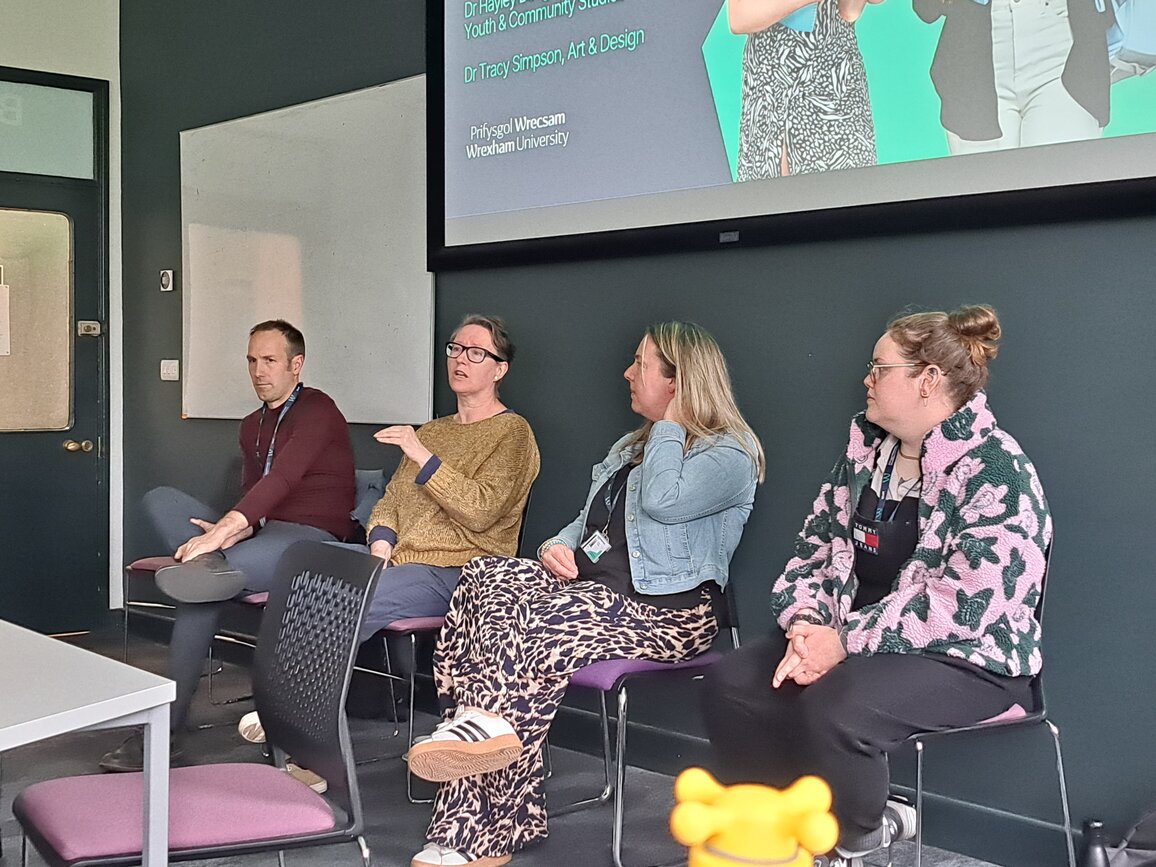
Next came a panel discussion chaired by Frances Thomason, featuring Drs Hayley Douglas, Julian Ayres, Paige Tynan, and Tracy Simpson. The conversation ranged from keeping your PhD on track to maintaining healthy boundaries, managing time, and staying organised. What really stood out was how personal these strategies are—everyone on the panel had a different approach, shaped by their own research, routines, and challenges.
After a short break, it was time for the 3-minute talks and presentations.
First up was Helena Barlow from Social Work, who gave us a whistle-stop tour of her research on ex-partner stalking. With a strong background in practice, Helena brought deep insight into this area—highlighting the urgent need for services supporting women stalked by ex-partners, and the troubling persistence of victim blaming in such cases.
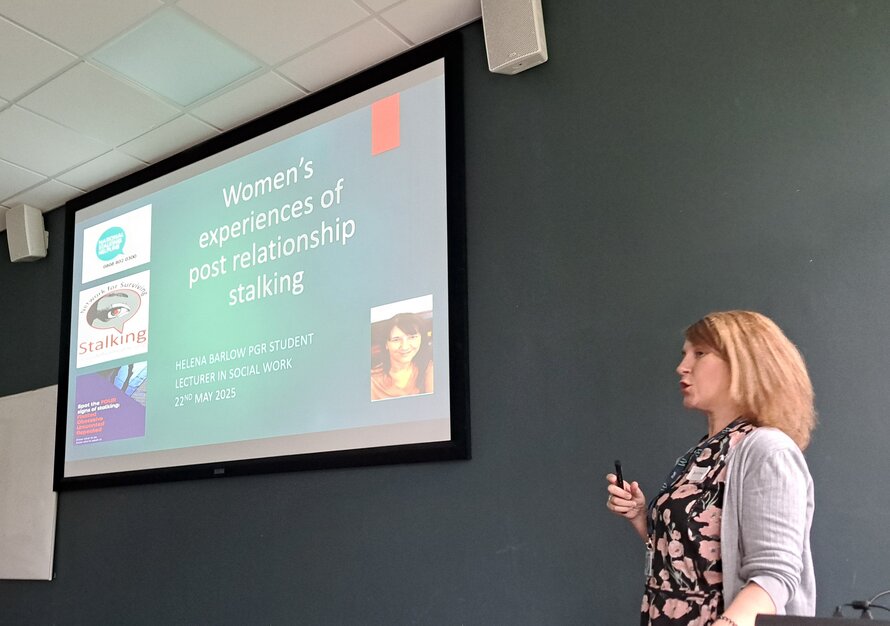
Next, Ffion Davies from Psychology—new to her PhD—delivered a thoughtful presentation on funerals in Wales. She reflected on the country’s shift from its traditionally Christian roots towards a more secular society. Drawing on personal experience, Ffion offered comparisons between Welsh traditions and those she observed in Bali, touching on Sunday rituals and broader attitudes to rest and remembrance. Her talk explored how funeral practices in Wales are evolving, particularly since the COVID-19 pandemic.
Louise Bosanquet, also from Social Work, followed with a talk about her work with Outside In, a unique focus group at Wrexham University. Louise focused on the value of lived experience participation, sharing how the group is currently collecting and analysing data through focus group discussions and ongoing interviews.
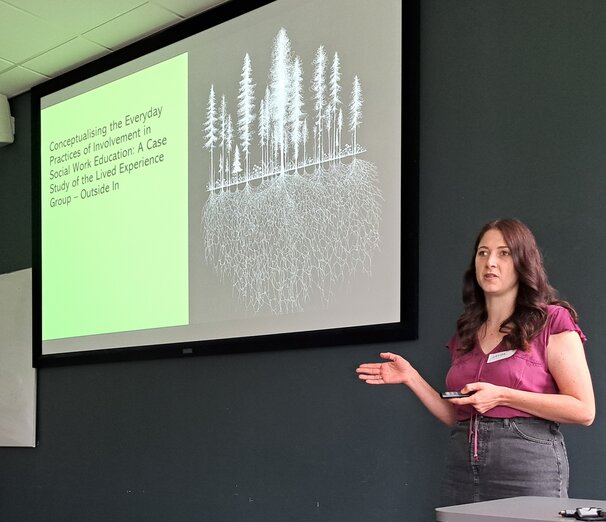
Then we heard from Cara Langford-Watts, from Criminology, who presented her research on using social media as a methodology. Cara delved into the volatile world of online platforms—their constant evolution, the rise and fall of different sites, and the challenges this creates for researchers. Gathering data from social media isn’t easy, and Cara offered a realistic, insightful look at both its potential and its pitfalls.
Katherine Rowlands from Psychology gave another flash talk by asking us all to imagine… LEMON! Do we see the shape? Smell it? Taste it? Her research looks at olfactory language and cognition—how our minds and senses represent ideas, and how language interacts with these processes. A refreshingly zesty talk that definitely stuck in people’s minds.
Next, Simon Everett from the Built Environment shared his work on ventilation systems in healthcare settings. Drawing on years of experience in healthcare—including overseeing energy budgets at a local hospital—Simon outlined how operating theatre ventilation works and how he hopes to make these systems more energy efficient.
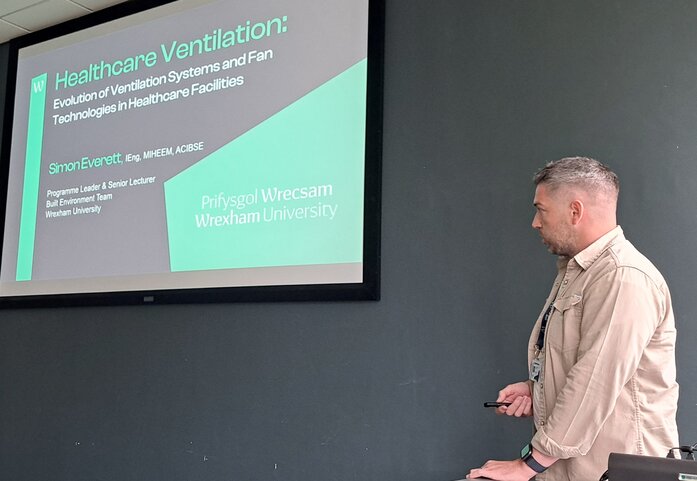
Dmitrii Iarovoi from Computing then outlined his PhD proposal, which explores working with historical sites to develop interactive digital guides. His research focuses on how accurate these AI-powered guides can be, especially in avoiding so-called "hallucinations"—false or misleading information.
Viktoriia Iarova, from Art and Design, brought a visual and emotional punch with her research into climate change through the lens of art. Sharing stunning photographs from Iceland and some of her own artistic pieces, Viktoriia stressed the urgency of global warming and the role of art in uniting people around this vital issue.
Last in the flash talk series was Fern Mitchell from Psychology, speaking about her MPhil research on informal science learning with parents and caregivers. Fern discussed how "science capital"—the knowledge, attitudes, and resources people bring to science—can influence the way we engage with it. Her work highlights the subtle but powerful role of family context in shaping science understanding.
A huge thank you to all our speakers—it was brilliant to hear about your current research and future plans.
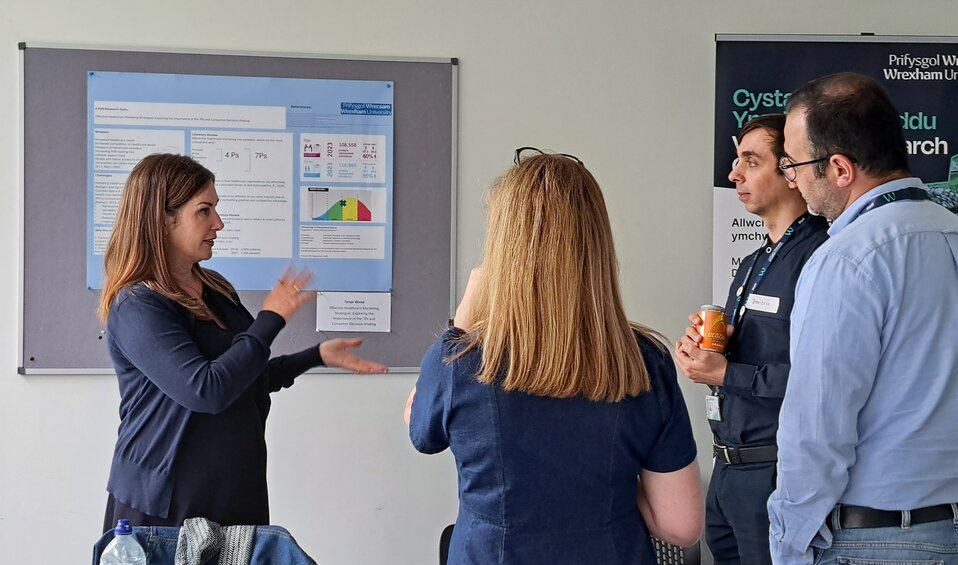
We then moved into a relaxed buffet lunch and had the chance to view research posters from Tanya Wood (Business), Sophia Mitchell (Criminology), and Alex Spichale (Built Environment). It was a great opportunity to chat informally, share ideas, and reflect on the morning’s presentations.
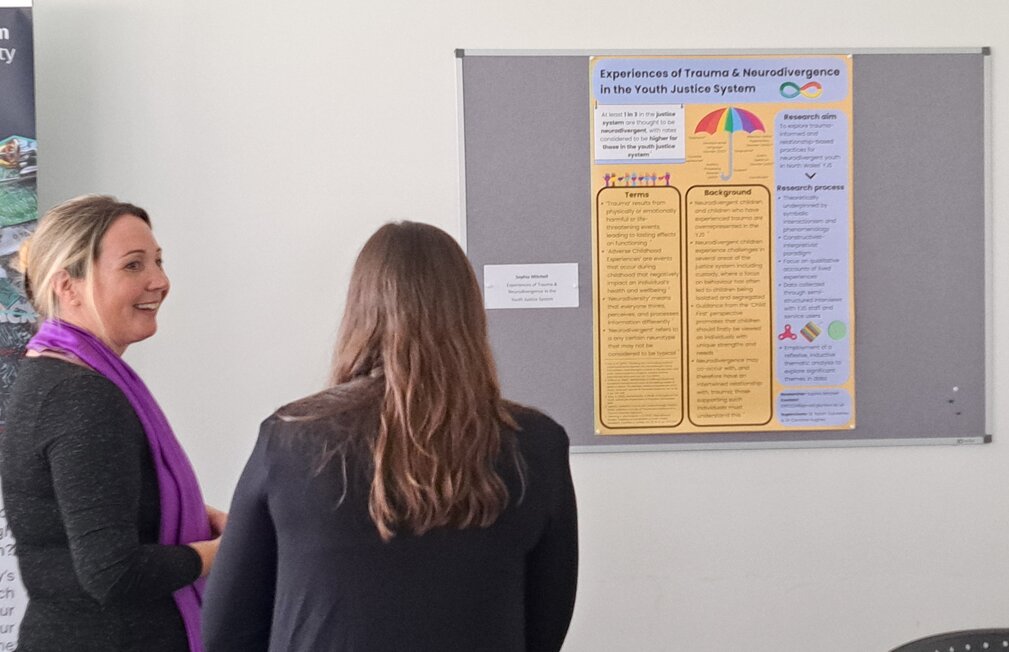
After lunch, we ended the day with a Research Culture Café—a chance for PGRs to share their thoughts on engaging with the academic community. There were lots of great ideas raised to develop and grow the PGR community and research culture, which the Research Office will be considering and taking forward.
What a successful day—roll on next year! We’re already looking forward to an even bigger and better Postgraduate Researchers' Day in 2026.